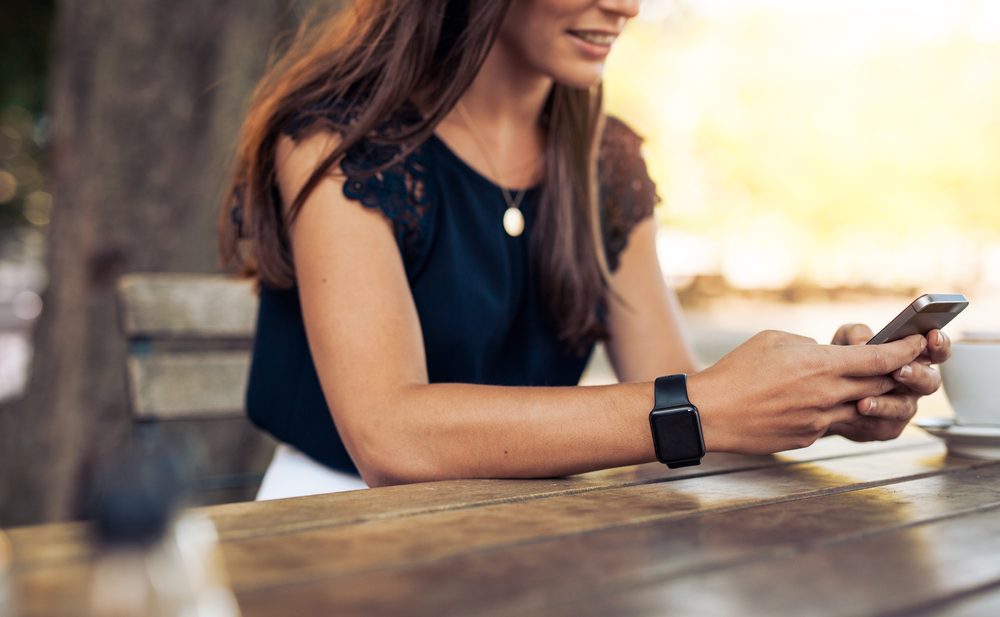We Don’t Control Smartphones, Now They Control Us
In today’s ever-evolving world, smartphones have become an indispensable part of our lives. Whether it’s for work, entertainment, or staying connected with family and friends, our phones have grown to be a vital part of our lives.
However, have you ever experienced that feeling of panic-stricken rush when you can’t find your smartphone or forget it at home? Or that nagging feeling when the battery dies, or the internet connection is lost? If so, you may be familiar with smartphone separation anxiety – a real and increasingly common phenomenon.
Smartphone separation anxiety, or nomophobia, is a term coined to describe the dreaded notion of being without a smartphone. This condition has become increasingly prevalent in recent years, and it is not limited to a particular age group or demographic. It is a universal problem affecting people of all ages, backgrounds, and lifestyles.
Smartphones have become so ingrained in our daily routines that we cannot imagine functioning without them. It’s not just a feeling of missing out on updates or notifications, but it’s an overwhelming sense of disconnection and helplessness that makes us feel lost and vulnerable.
As we get dependent on our smartphones, we also grow prone to experiencing separation anxiety. According to a study conducted by the Pew Research Center, 58% of Americans aged 18 to 29 say they feel nervous and can’t live without their smartphones, while 40% say they would feel anxious if they didn’t have their phones to accompany them.
So, why do we experience smartphone separation anxiety? For many of us, our smartphones have become an extension of ourselves, a virtual limb that we cannot bear to be without. These gadgets are no longer just for making calls or sending texts, they have become our personal assistants, our social connections, and our entertainment hubs. From social media, personal information, contacts, and memories to work emails, advanced technologies have made everything just a click away. The convenience and ease of access that smartphones provide have made them an absolute must in our lives.
Moreover, the fear of missing out (FOMO) is another factor that leads to smartphone separation anxiety. We feel compelled to check our phones constantly to ensure that we’re not missing out on any recent updates. This FOMO creates a vicious cycle of addiction, which makes it even harder to put down our phones.
Research has shown that smartphone separation anxiety can have significant effects on our mental and emotional well-being. Studies have revealed that smartphone addiction can lead to depression, anxiety, and other serious mental health issues. It can also affect our sleep patterns, disrupt our relationships, impact our productivity, and even cause physical signs like eye strain and headaches.
While the problem of smartphone separation anxiety is quite concerning, it’s not all doom and gloom. There are steps we can take to mitigate the impact of this occurrence on our lives.
Here are some tips to help reduce your reliance on your device:
Practice mindfulness: Take some time each day to disconnect from your phones and focus on the present moment. Mindfulness can be practiced by meditating, taking a walk in nature, or doing some deep breathing exercises.
Set boundaries: Limit your phone usage by allotting specific times for when you spend time with your phone and stick to those times. For example, try to look at your phone only during lunchtime or after work.
Turn off notifications: Disable notifications for apps that don’t require immediate attention. By doing so, you’ll have fewer distractions and be able to concentrate better.
Find alternative activities: Replace phone usage with other activities that you would generally enjoy doing. This could be anything from reading a book, playing a sport, or spending time with friends and family.
Seek support: If you’re struggling with smartphone separation anxiety, seek support from a therapist or a support group. They can help you develop coping strategies and provide you with that push you need to break free from your phone addiction.
It is possible to overcome anxiety by acknowledging its impact on our mental health, establishing clear boundaries, and building real connections with people. By doing so, we can find a healthy balance between our digital and real lives and lead a more fulfilling and satisfying life. Let’s embrace the beauty of the world around us and let go of our smartphones occasionally.
You Can Count On Us
At times when your mental health has taken a toll on your daily lives, reach us out at +1 (917) 267 8635. NABHS is here to help you through all your mental health concerns and guide you to thrive in life.












